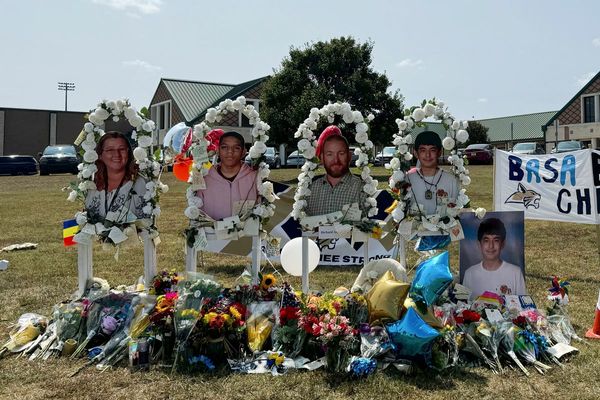
A credible process leading to a new transitional government involving all strands of Syrian society is the best way for the country’s caretaker administration to secure a smooth lifting of sanctions, the UN special envoy Geir Pedersen has told the UN security council.
Giving his assessment of how the government led by Ahmed al-Sharaa, the head of the Islamist group Hayat Tahrir al-Sham, was meeting its commitment to inclusiveness, Pedersen said it had tremendous opportunities but also risked making missteps.
“Decisions taken now will determine the future for a long time to come. There are great opportunities and real dangers,” he told a special security council briefing in New York on Wednesday. The US has lifted some sanctions for six months and the EU may do the same later this month.
Treading carefully so as not to damage links with a government of contradictions and factions, Pedersen said many Syrians had received signals of inclusiveness but that there were concerns about a lack of transparency.
Some militias had not yet folded into the new defence ministry, while others – notably the Syrian Democratic Forces and the Syrian National Army – were actively involved in military clashes, he said.
Pedersen also expressed deep concern over the actions of the Israel Defense Forces, saying their continued attacks inside Syria could put a peaceful transition at risk. He said Turkey had also warned it may step up its military activity in Syria.
Discussing the national dialogue conference vital to the formation of a transitional government from March, Pedersen said there were still concerns over the lack of transparency on “timing, framework, goals, procedures [and] criteria for attendance and balance of representation”.
“It is crucially important that the process is not rushed and that it is well prepared and thought through,” he said. “In this regard, I welcome the fact that the caretaker authorities have now verified publicly that the conference has been delayed until an expanded preparatory committee can be formed that includes what was called comprehensive representation of Syria from all segments and governance.”
He expressed no criticism of Sharaa for setting out a four-year timetable for national elections – more than two years longer than set out in UN resolution 2254 – accepting that a resolution passed in 2015 could no longer be implemented literally because it was predicated on a reconciliation between the opposition and the previous regime of Bashir al-Assad. “There is a need for a new approach and a new mode of thinking,” he said.
He stressed that the UN wished to be a partner in that process, something Sharaa may resist. In particular he said there would eventually need to be free and fair elections in line with international standards. He said he did not think it was necessary for a new government to be formed on the basis of quotas linked to sects and regions.
Pedersen also regretted “significant decisions or positions being taken that many Syrians believe should be left to a more inclusive transitional phase, such as articulating positions on the character of the state before a constitutional law, as well as issuing long-term policy decisions with regards to the security sector, or in fields such as education”.
He said there were some signs of instability in areas under the control of the caretaker authorities, including coastal areas Homs and Hama. “There have been videos circulating of what appear to be abuses or extrajudicial killings of officials from the former regime,” he said. “Though we note reports of the caretaker authorities arresting some perpetrators, there are also reports that plans for public sector restructuring, mainly many without livelihoods, which may push them into need and further jeopardize stability.”
In a sign of concerns inside Syria about the composition of the HTS-led government, activists and rights groups have demanded the interim justice minister, Shadi al-Waisi, be investigated or sacked over old footage that has resurfaced linking him to the summary killings of two women accused of prostitution.
In one video, armed men ask a veiled woman to kneel down in the middle of the street before shooting her dead. A man who appears to be Waisi speaks to her briefly and then records the killing on his phone.







